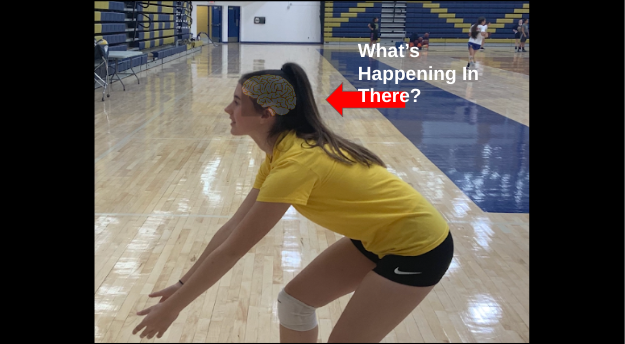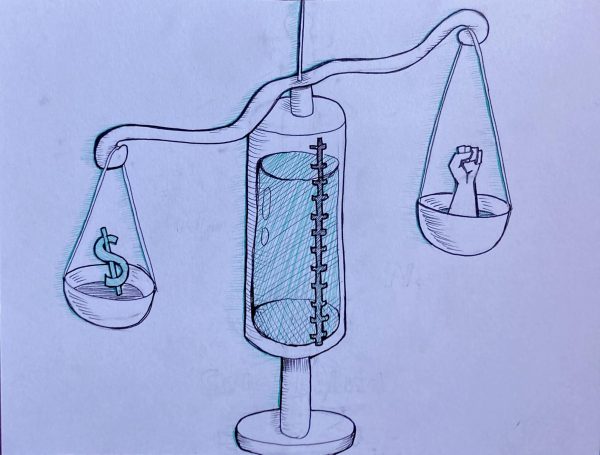Playing Sports: How Does It Affect Student-Athletes’ Mental Health?
September 26, 2019
Sports are known to have many effects on physical health for all who play them, including student-athletes. But what about the effects on mental health? Can playing a sport worsen a student’s mental health, or can it actually help? Turns out it’s a little of both.
Mental health is an important topic around the world but especially in America. According to the National Alliance on Mental Illness, 46.1 million adults in the United States suffer from some type of mental illness or disorder (19.1 percent) and 7.7 million youth ages 6 to 17 suffer from some type of mental illness or disorder (16.5 percent). This means that one in six young people has a mental illness.
People experience mental health issues for different reasons, including genetics, exposure to toxic substances before birth, or particular brain chemistry.
There are different ways to improve mental health. One way is playing sports.
Advantages
Playing sports can give student-athletes an area in which to excel. This can add some positivity to a student’s life, especially if they are the kind of student who has trouble with grades.
The positive feeling produced while being physically active is the effect of endorphins that are released in the body. These chemicals are also called “happy chemicals” since when released, they make the body and brain feel free of pain and stress, according to Newport Academy.
Eliza Fowler, a freshman volleyball player, has felt this change in herself while playing her sport. “Personally for me, depression runs in my family… and I noticed that sports and exercising make it a lot better for me.”
Eliza also notices changes in her teammates and their attitudes before and after practice: “People will come after school and be like, ‘Oh, we don’t want to practice,’ and then by the middle of practice we’re all having fun.”
Another way playing on a team helps improve mental health is that when student-athletes learn how to handle school and sports at the same time, they learn about time management. Learning this skill at a young age can help boost self-confidence.
“I think sports are a great way to teach time management and work ethic skills,” says Jacob Mirabal, a freshman football and baseball player. He believes that the stress of sports and school at the same time is good for him because it helps him to prepare for the future.
Mr. Marano feels the same way and knows it’s true since he used to be a student-athlete himself. He said that learning how to balance school and sports has helped him in his career. “Learning how to balance your time — getting school work done and also getting to practice and being a part of the team really sets you up for success later on down the road because it teaches you how to organize, how to be structured, and how to have that balance and make time,” he said.
Another advantage of playing sports is improved concentration and focus levels. According to Healthline, a health guidance website, performing in sports allows a person’s brain to sharpen and concentrate more. Being able to concentrate on specific tasks for longer periods of time is shown to help improve mental health.
Even though playing sports has a lot of benefits to student-athletes’ mental health, there are also some disadvantages.
Disadvantages
The main disadvantage that playing sports brings to a student-athletes’ mental health is added stress. This stress can take many forms, such as trying hard not to let down teammates, balancing school and sports, and self-pressure. Stress isn’t considered a mental illness, but it is linked to some mental illnesses because it forces the body to act and feel different.
Jacob feels this way while playing football: “One of the most stressful things you worry about is not messing up for your teammates.” He believes this stress isn’t good for his or other people’s mental health, but he still enjoys his sport.
Another thing that brings a lot of stress is learning how to balance school and sports at the same time.
Kaitlyn Cook plays tennis and feels this stress. “You feel like you’re overwhelmed and you have to get a whole bunch of other stuff done before you can go and play sports, or you have to stay up late at night to finish your homework or classwork,” she said.
Self-pressure isn’t good for mental health either because if the student-athlete doesn’t perform to their own standards, this could add to the feeling of doubt and depression. Because a student-athlete doesn’t want to feel any of these feelings, they put a lot of stress on themselves to perform to their own high standards.
Eliza said she feels a lot of self-pressure while playing volleyball. “I think I put pressure on myself to try to do really well… and I think that I get too down on myself when I mess up,” she said.
Doing it for the Joy
There are both advantages and disadvantages to playing sports for student-athletes’ mental health. But one thing for sure is that even if sports were scientifically linked to worsening mental health, many student-athletes would still play.
“It brings too much joy to me and happiness to not play,” says Jacob.












